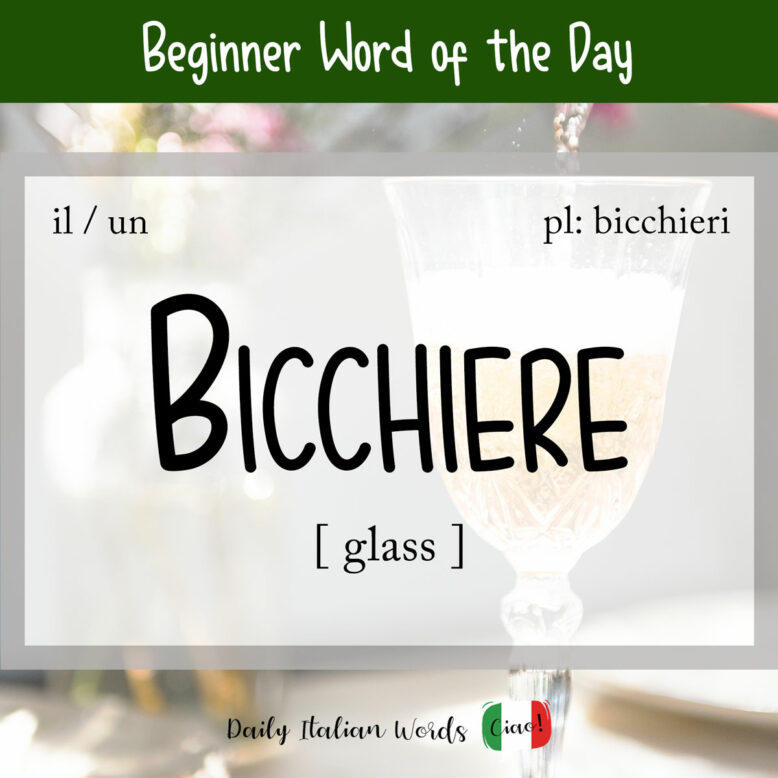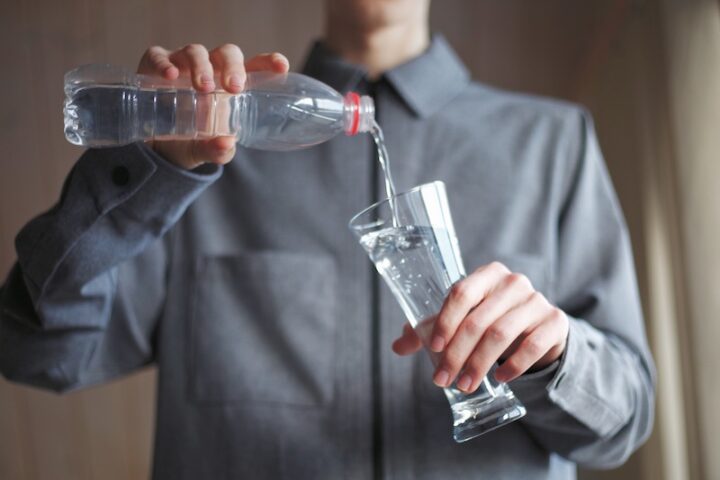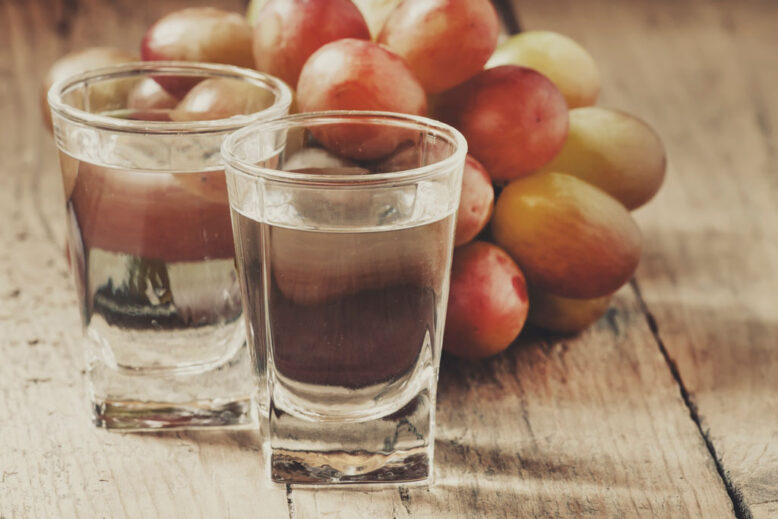The Italian word for a glass or cup from which one drinks is bicchiere (masculine, plural: bicchieri). It is thought to derive from a dialectal form of old French, or possibly the Greek βῖκος (bikos).
Learn with our video

Ho fatto cadere il bicchiere e si è frantumato in mille pezzi.
I dropped the glass and it shattered into 1000 pieces.
In addition to describing the drinking container itself, it may also denote its contents as in the following examples:
- un bicchiere d’acqua = a glass of water
- un bicchiere di succo = a glass of juice
- un bicchiere di vino = a glass of wine
- un bicchiere di birra = a glass of beer
Important: If the preposition da is used instead of di, it is the purpose of the glass that is being described rather than its contents. For example, un bicchiere da vino is a wine glass whereas un bicchiere di vino is a glass of wine.

If you use bicchiere on its own in expressions like andare / uscire a bere (to go / to go out and drink), it is implied that you are referring to an alcoholic drink of some sort, wine in particular.
Andiamo a bere un bicchiere stasera! Pago io!
Let’s go have a drink tonight! It’s on me!
Don’t be surprised if you see it in its apocopic form bicchier, particularly in front of the preposition di (of) + a kind of drink. For example, you can say un bicchier d’acqua (a glass of water) instead of un bicchiere d’acqua.
The diminutive form bicchierino means small glass whereas bicchierata can translate in three different ways: a drinking party, a glassful (when talking about a glass’ contents) and, to save the funniest for last, a blow to the head with a glass. Note that the last two definitions are not common.

Did you know…?
Bicerin is the Piedmontese term for bicchierino and is also the name of a popular hot drink created in Torino. It is made with espresso, hot chocolate and milk.
Idiomatic expressions featuring ‘bicchiere’
Bere un bicchiere di più / di troppo
Literal translation: to drink one glass more / too many
English meaning: to drink one too many, to get drunk
Come bere un bicchier d’acqua
Literal translation: like drinking a glass of water
English meaning: to be a piece of cake, to be very easy
Alzare il bicchiere
Literal translation: to lift the glass
English meaning: to raise one’s glass
Una tempesta in un bicchier d’acqua
Literal translation: a storm in a glass of water
English meaning: a great racket or quarrel for nothing
Perdersi / affogare in un bicchier d’acqua
Literal translation: to lose oneself / to drown in a glass of water
English meaning: to get confused or worried when faced with minimal difficulties
Il bicchiere della staffa
Literal translation: the glass of the stirrup
English meaning: the final toast, the last glass (a reference to the final drink gentlemen had before heading home on horseback following a night out with friends)
This article is also available in video format on our YouTube channel. The audio version can be found on Podbean, Google Podcast, Apple Podcast and Spotify.
Heather Broster is a graduate with honours in linguistics from the University of Western Ontario. She is an aspiring polyglot, proficient in English and Italian, as well as Japanese, Welsh, and French to varying degrees of fluency. Originally from Toronto, Heather has resided in various countries, notably Italy for a period of six years. Her primary focus lies in the fields of language acquisition, education, and bilingual instruction.


